The financial market still depends greatly on the resilience of the real economy , in which production, trade and export will be key, leading factors.
2023 is a challenging year for the world and Vietnam
The world is going through an extremely challenging year 2023 when economic recession occurs everywhere, economic growth is severely reduced.
According to a report by credit rating agency Fitch Ratings, the world's overall GDP growth is about 2.5 - 3%, lower than the initial forecast of the International Monetary Fund (IMF) of 3.3 - 3.5%. Meanwhile, the World Bank (WB) believes that global economic growth in 2023 will reach no more than 2.1%.
The above figures partly reflect the global economic recession and Vietnam as well. In 2023, our country's economy is forecast to grow by about 5.8%. This is the lowest growth rate in the past 10 years (except for the period of 2020, 2021 due to the impact of the COVID-19 pandemic).
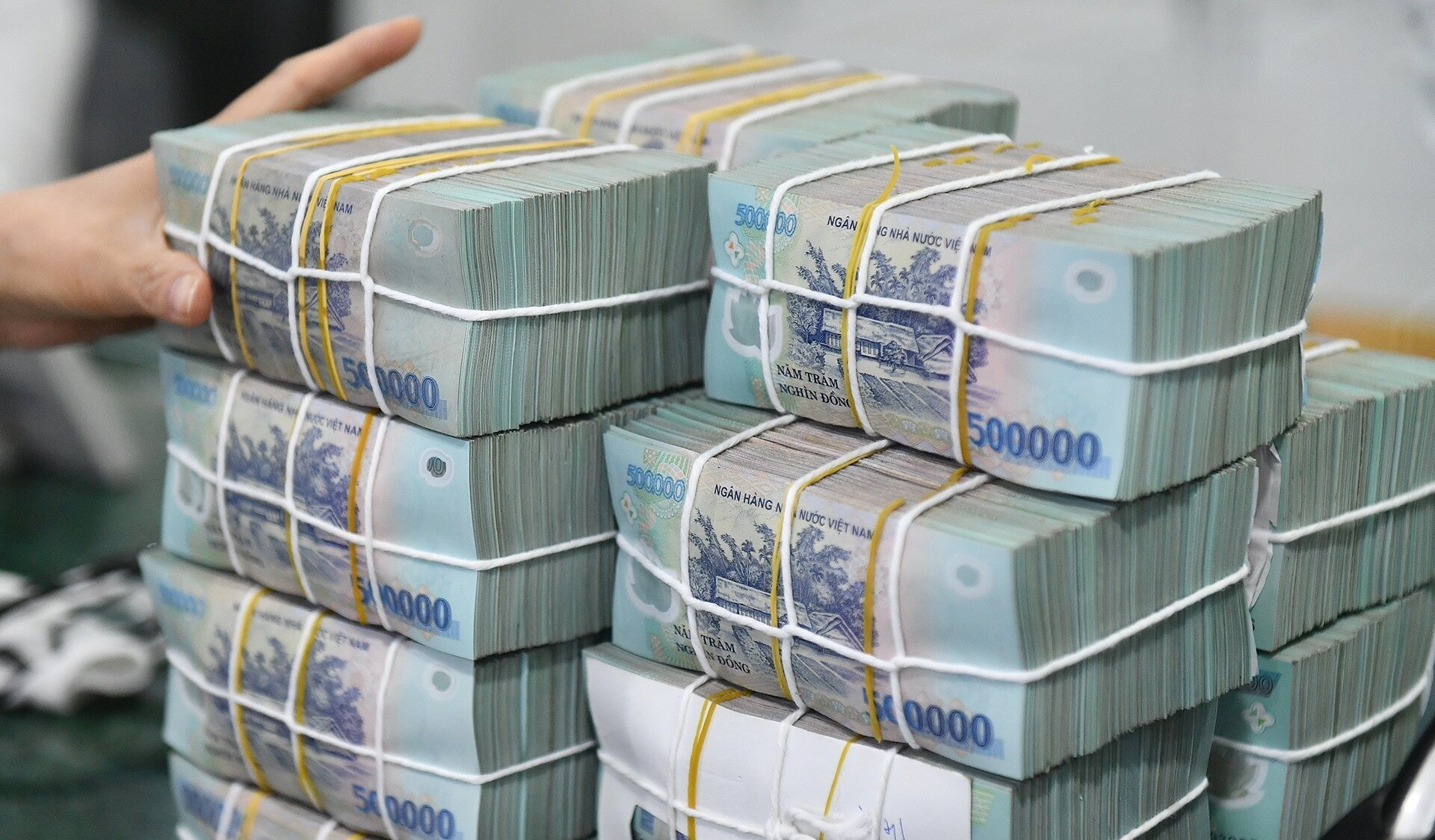
2023 is a year of many challenges for the Vietnamese and global financial sector. (Photo: Hoang Ha)
Low economic growth also brings gloom to Vietnam's financial sector.
2023 is a “stormy” year for the banking, securities and insurance industries. These are the main pillars of national finance. With a market size of just over VND913,000 billion, insignificant compared to the size of the credit and securities markets, the insurance industry still has stable growth.
Therefore, the resilience of the financial sector depends entirely on the credit and stock markets. However, these two markets are struggling.
The year 2023 will witness significant challenges for the credit market as a series of banks are experiencing a situation of "excess money". As of December 13, credit in the entire economy reached about 13 million billion VND, of which credit growth reached only over 9.87% and is far from the annual target of 14%. According to the National Financial Supervisory Commission, credit growth for the whole year of 2023 may only reach about 10%.
Meanwhile, the stock market also did not have many bright spots as it continuously lost hundreds of points since mid-September 2023 under pressure from the international market. Currently, the VN-Index has only increased slightly compared to the beginning of the year.
However, a positive signal for the stock market is that the number of new accounts continues to increase, reaching 7.25 million accounts and the transaction value is also more positive. The market capitalization is about 5.6 million billion VND, up 6.4% compared to the end of 2022.
In 2024, production recovers, supporting the financial market?
Dr. Vo Tri Thanh, former Deputy Director of the Central Institute for Economic Management, commented that the current economic growth rate is still low. From now until mid-2024, the economic situation will still face many difficulties and uncertain risks.
Dr. Pham Manh Thang, Chairman of the Board of Directors of PG Bank, said that in 2023, Vietnam's economy has not yet recovered strongly, and growth is not as expected. This also makes the financial sector "struggle", low interest rates but no borrowers, bad debt increases. The main reason is that businesses and people are facing more difficulties in production and business than before.
According to Mr. Thang, the driving force for the development of Vietnam's financial sector in 2024 depends on the Government 's economic development policies. When production, trade and services develop, the financial sector can support the economy well.
“In 2024, if the Government continues to promote public investment and stimulate consumption, the banking and finance sector will have many opportunities. In addition, if the bond and real estate markets have a “soft landing”, the financial market will be better. These are important contents for the financial market to rise in the new year. In addition, in 2024, the financial sector will have more hope when the wave of foreign investment is showing signs of increasing, especially investment from China,” said Mr. Thang.
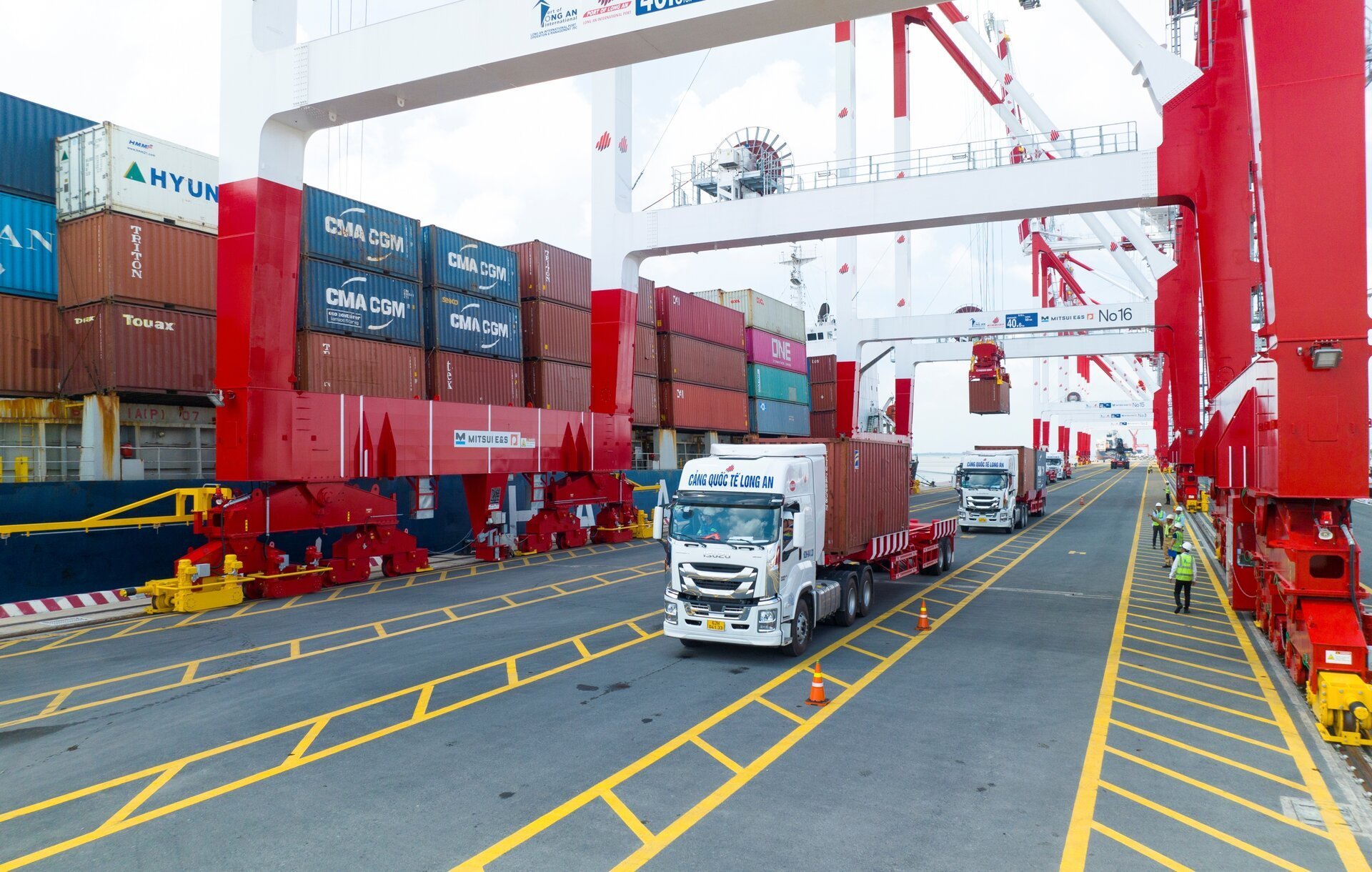
Boosting production and export are important driving forces for the financial sector to grow and develop. (Photo: Xuan Thai)
Dr. Trinh Doan Tuan Linh, a financial expert, shared that in order to develop the financial sector, the “real economy” including production of goods, services, exports, etc. must develop. This shows that the financial sector cannot be separated from the real economy.
Mr. Linh commented that currently, the strength of the financial sector lies mainly in commercial banks. Meanwhile, banks, which are monetary business units, are facing many difficulties. Typically, there is a lot of money in banks but it cannot be lent out, and inventories are increasing sharply.
“The difficulty for businesses is selling products but not collecting money. This difficulty is often referred to by banks as lending without collecting,” said Mr. Linh.
According to Mr. Linh, most of the outstanding loans of banks today are in real estate. Therefore, if there is no suitable policy for the real estate business, and if there is no boldness in "eliminating" weak businesses, it will be very difficult for commercial banks to prosper.
Mr. Linh also warned that the move to “pump” too much money into the economy will also be dangerous, because money can be printed. The nature of a developed economy is not how much money is “pumped”, but what must the economy produce and how much value does the produced things have?
According to Mr. Linh, in recent times, the Government has made great efforts in managing and promoting the economy. The best policies have been applied in practice, however, these policies are gradually becoming "saturated". Therefore, the core task of 2024 is to develop production, develop the market for goods, trade and export.
In addition, the State also needs to consider reducing taxes on strategic goods. Typically, reducing special consumption tax on some luxury goods.
Regarding the stock market, Mr. Linh said that this market is "quite far" behind the credit market and is very difficult to predict, because the stock market not only operates according to normal economic laws but also depends on investor psychology, depends on the way it operates...
Mr. Linh believes that 2024 is still a year without many bright spots in the financial market.
Reduce "excess money" in the new year
According to financial experts, removing obstacles for the banking sector is an urgent task, because banks are holding a huge amount of capital in the economy. If the situation of “excess money” is not reduced and the “flow” of national finance is not cleared, the economy will continue to face difficulties.
Excess money comes from two main reasons. The first reason is that people and businesses do not have demand, leading to weak demand. When demand is weak, businesses do not want to borrow more capital to produce and do business. When people and businesses do not borrow, banks have "excess money".
The second reason for excess cash is because a business needs money but cannot afford to borrow it.
Dr. Nguyen Huu Huan, a banking and finance expert, said that to solve the above two causes, it is necessary to stimulate demand and introduce policies to reduce taxes and fees so that people can increase their shopping and consumption. In addition, it is necessary to introduce policies to encourage businesses to increase exports.
“When the three-horse carriage of exports, domestic consumption and public investment grows strongly, the situation of excess money will be handled well. However, at present, only public investment is being implemented well, while domestic consumption and export demand are still quite weak,” Mr. Huan said.

Dr. Nguyen Huu Huan, banking and finance expert. (HT)
According to Mr. Huan, tax and fee support for people and businesses is a very important factor to promote domestic consumption demand. In addition, bilateral and multilateral trade agreements also need to be strongly implemented to promote exports.
According to Mr. Huan, many trade agreements have been signed with Vietnam, but these agreements need to be put into practice. A typical example is that Vietnam and the US have become Comprehensive Strategic Partners. Specific provisions need to be deployed, implemented and applied in practice.
The Government is carrying out the implementation very vigorously, however, relevant agencies and the Trade Promotion Agency also need to proactively request the US to remove the "barriers". Especially barriers in the field of agricultural exports or anti-dumping taxes.
Mr. Huan assessed that reducing VAT will also stimulate domestic consumption. In addition, the Government also needs to have special policies for the real estate industry, because this industry is holding a large amount of capital in the economy. Therefore, the real estate market needs to be "revived" as soon as possible and the policy must be long-term.
Regarding the State Bank of Vietnam (SBV) and commercial banks, Mr. Huan commented that the current monetary policies have become “saturated” and if they continue to be implemented, they will not have much effect on the economy. Because interest rates have also dropped to the lowest level in history (below 3%), at times the interbank interest rate has fallen close to 0%. This shows the ineffectiveness of monetary policy, meaning “nothing more can be done”.
According to Dr. Can Van Luc, economic expert - Member of the National Financial and Monetary Policy Advisory Council, in order to avoid "excess money" in the new year, in addition to the above solutions, it is necessary to "remove" the credit limit tool (credit room). This will contribute to unblocking the flow of capital into the economy.
In fact, many banks still have money and potential customers waiting for capital but cannot lend because they run out of credit room. Some banks have to apply to the State Bank to grant more credit room so that people and businesses can borrow.
Mr. Luc said that the State Bank wants to control credit limits so that banks do not compete to increase deposit interest rates. This could put pressure on inflation and limit the increase in bad debt. However, the State Bank can control this through risk safety coefficients, typically the Capital Adequacy Ratio (CAR). The use of the CAR coefficient is both public and transparent and does not directly interfere with the administrative work of banks.
“When we apply the CAR ratio, we will clearly control credit institutions in terms of equity and lending investment. That is, if a credit institution wants to increase credit growth by 15%, its equity must also increase accordingly. This is also the method that developed countries are applying and has become international practice,” said Mr. Luc.
Actively innovate policies and "resolve difficulties"
Ms. Bui Thuy Hang, Deputy Director of the Monetary Policy Department of the State Bank, said that the unit is implementing many solutions to remove difficulties in credit growth. The State Bank will continue to direct banks to reduce costs and reduce lending interest rates to support businesses.
“The State Bank also implements credit policies and solutions to focus on production and business sectors as well as priority sectors according to the Government's policies,” said Ms. Hang.
A representative of the State Bank said that this unit has directed credit institutions to review lending procedures to shorten time and minimize procedures to best support people.
In addition, the State Bank also recommended to relevant ministries and branches to implement solutions to improve credit conditions, especially for small and medium enterprises.
In 2024, the State Bank will continue to proactively, flexibly and synchronously manage monetary policy tools, closely coordinate with fiscal policy and macroeconomic policies to promote economic recovery, ensure major balances of the economy, control inflation, stabilize the macro economy, and promptly adapt to fluctuations in domestic and foreign markets.
The State Bank will regulate currency, market liquidity reasonably, and manage interest rates and exchange rates in accordance with market conditions and monetary policy objectives. Manage credit growth reasonably to help control inflation, support economic growth, and direct credit capital to production and business sectors; continue to implement solutions to remove difficulties and create favorable conditions for access to credit capital.
The State Bank of Vietnam will step up the implementation of a VND15,000 billion credit package to support businesses in the forestry and fishery sectors; a VND120,000 billion credit package for loans for social housing, workers' housing, and renovation of old apartments.
Regarding credit institutions, the State Bank of Vietnam recommends focusing on allocating credit capital to production and business sectors, priority sectors, and sectors that are drivers of economic growth.
Source


![[Photo] Prime Minister Pham Minh Chinh chairs meeting on science and technology development](https://vphoto.vietnam.vn/thumb/1200x675/vietnam/resource/IMAGE/2025/5/17/ae80dd74c384439789b12013c738a045)
![[Photo] National conference to disseminate and implement Resolution No. 66-NQ/TW and Resolution No. 68-NQ/TW of the Politburo](https://vphoto.vietnam.vn/thumb/1200x675/vietnam/resource/IMAGE/2025/5/18/adf666b9303a4213998b395b05234b6a)



![[Photo] More than 17,000 candidates participate in the 2025 SPT Competency Assessment Test of Hanoi National University of Education](https://vphoto.vietnam.vn/thumb/1200x675/vietnam/resource/IMAGE/2025/5/17/e538d9a1636c407cbb211b314e6303fd)



















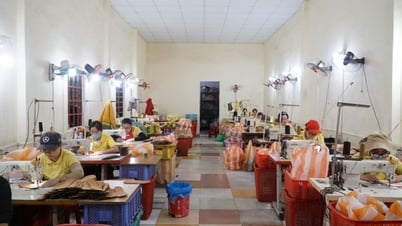










![[Photo] Readers line up to visit the photo exhibition and receive a special publication commemorating the 135th birthday of President Ho Chi Minh at Nhan Dan Newspaper](https://vphoto.vietnam.vn/thumb/1200x675/vietnam/resource/IMAGE/2025/5/17/85b3197fc6bd43e6a9ee4db15101005b)











































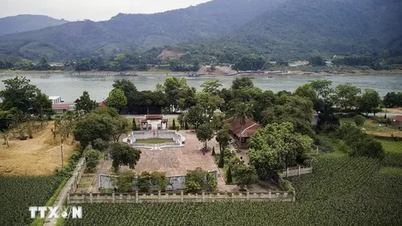





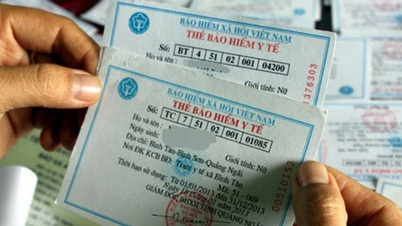














Comment (0)